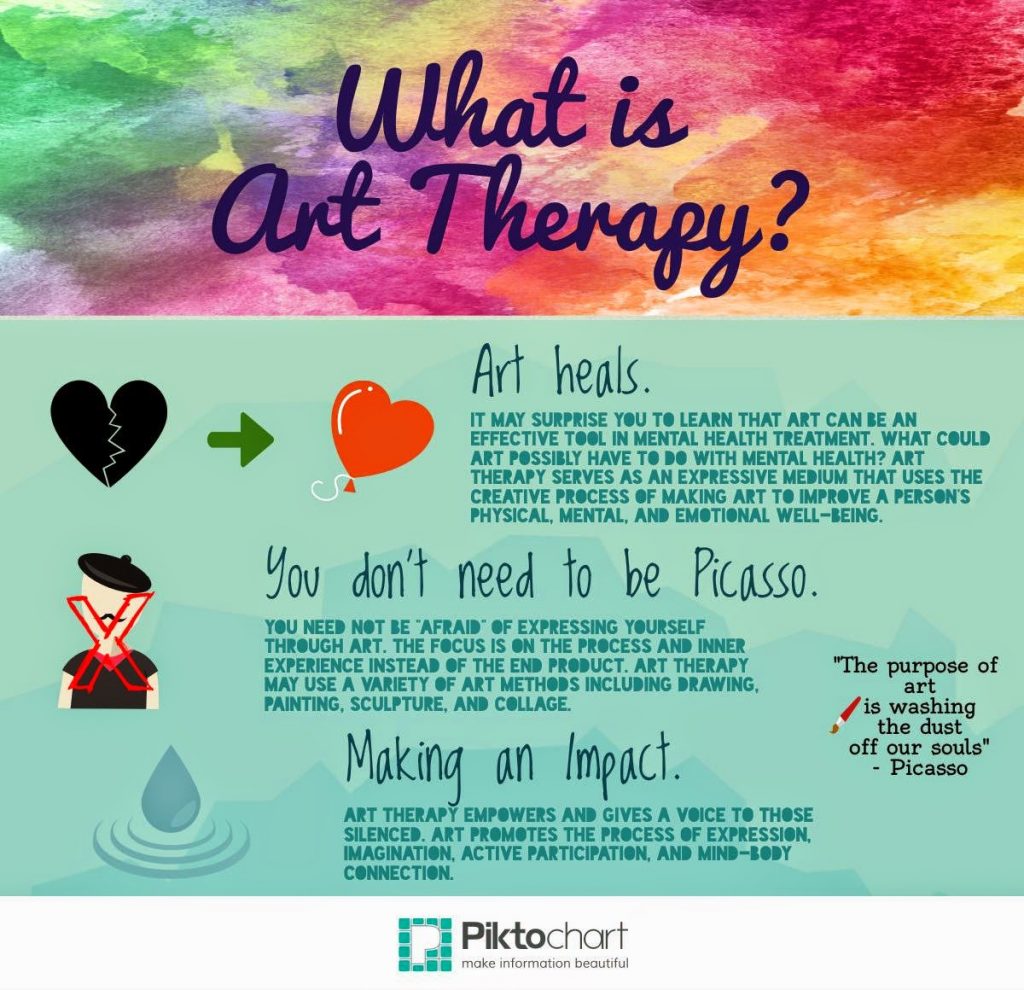What is Art Therapy
Art therapy involves the use of creative techniques to help people express themselves artistically and examine the psychological and emotional undertones in their art. With the guidance of a credentialed art therapist, clients can “decode” the nonverbal messages, symbols, and metaphors often found in these art forms, which should lead to a better understanding of their feelings and behavior so they can move on to resolve deeper issues.






